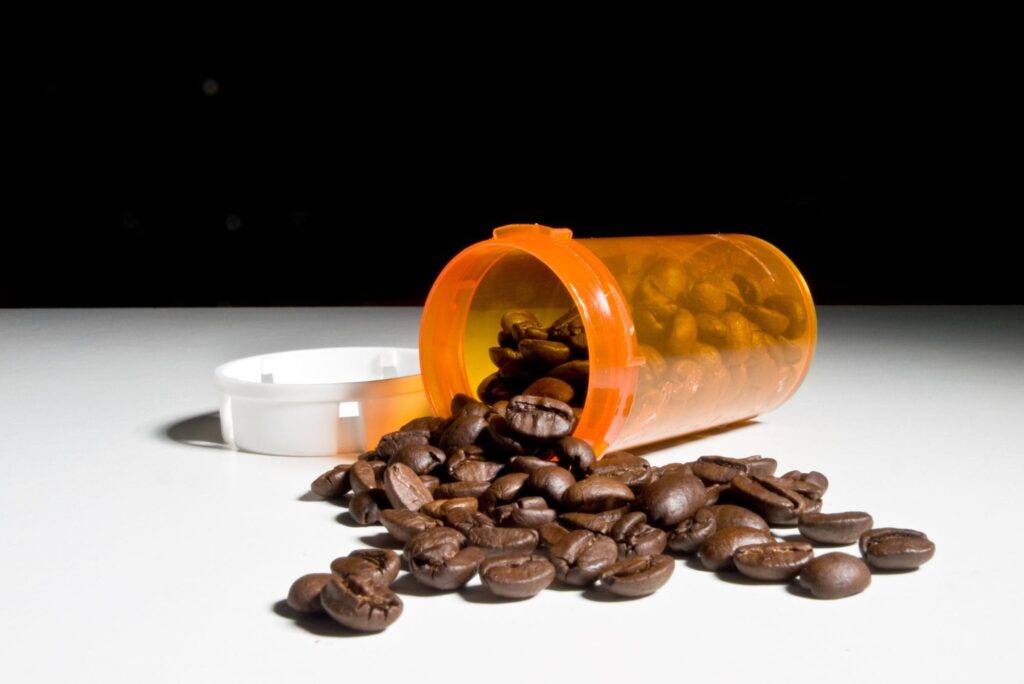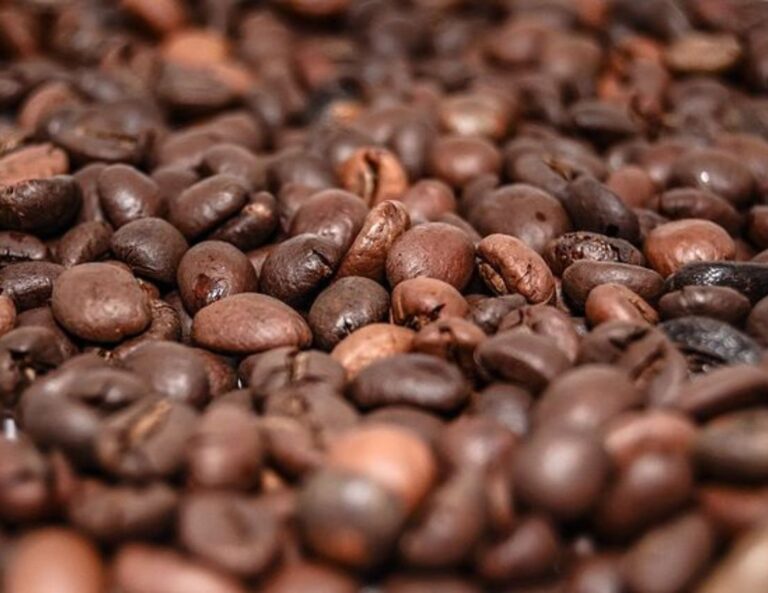The time it takes for coffee to kick in varies from person to person. On average, you might start feeling the effects within 15 to 45 minutes after drinking coffee. Factors such as metabolism, body weight, and individual sensitivity play a role.
Caffeine, the active ingredient in coffee, stimulates the central nervous system, leading to increased alertness and energy. It’s essential to be mindful of your own body’s response and adjust your coffee consumption accordingly.
Experiment with timing and be aware of your caffeine tolerance to find what works best for you. Remember, moderation is key for a balanced and enjoyable coffee experience.
What Are The Factors Influencing Coffee’s Kick-In Time?

The time it takes for coffee to kick in is influenced by several factors, including metabolism, body weight, and individual sensitivity. Faster metabolism accelerates caffeine processing, lower body weight may intensify effects, and varying individual sensitivities contribute to the overall variability in the onset of coffee’s stimulating effects.
Exploration of Variables Affecting Caffeine Absorption
Metabolism
Metabolism plays a pivotal role in how quickly the body processes caffeine. Individuals with a faster metabolism may experience a more rapid absorption of caffeine, leading to a quicker onset of its effects.
Body Weight
Body weight influences caffeine distribution. Generally, individuals with lower body weight may experience a more pronounced effect as caffeine is less diluted within their bodies. Conversely, those with higher body weight may require more caffeine for a similar impact.
Individual Sensitivity
Personal sensitivity to caffeine varies widely. Some individuals are highly sensitive, experiencing the effects with minimal amounts, while others may require larger doses. Genetic factors contribute to this sensitivity, influencing how receptors in the body respond to caffeine.
How These Factors Contribute to Variations
Metabolism’s Impact
A faster metabolism leads to quicker processing of caffeine in the liver. This, in turn, results in a shorter time for caffeine to reach the bloodstream and exert its stimulating effects on the central nervous system.
Body Weight’s Influence
Body weight affects the distribution of caffeine throughout the body. With lower body weight, caffeine is more concentrated, potentially leading to a faster and more noticeable effect. Higher body weight may require a larger dose to achieve a similar impact.
Individual Sensitivity’s Role
Individual sensitivity influences how the body reacts to caffeine. Those highly sensitive may feel the effects sooner and more intensely, while individuals with lower sensitivity might require more time or larger quantities for a noticeable impact.
What Are The Roles of Caffeine in the Body?

Caffeine does important things in your body by stopping the sleepy signals. It blocks something called adenosine, which usually makes you feel calm. This makes your brain more active and releases chemicals that help you stay awake and feel more alert and energetic.
How Caffeine Interacts with the Central Nervous System
Caffeine, a natural stimulant found in coffee, interacts with the central nervous system (CNS) by blocking adenosine receptors.
Adenosine, a neurotransmitter, promotes relaxation and sleepiness when it binds to its receptors. Caffeine’s molecular structure closely resembles adenosine, allowing it to bind to these receptors without activating them.
As a result, the usual calming effect of adenosine is inhibited, leading to increased neural activity.
The Physiological Processes Leading to Increased Alertness and Energy

Adenosine Receptor Blockade
By blocking adenosine receptors, caffeine prevents the inhibitory effects of adenosine. This leads to increased release of neurotransmitters like dopamine and norepinephrine, heightening neuronal firing and promoting wakefulness.
Release of Neurotransmitters
Elevated levels of neurotransmitters, particularly dopamine, contribute to improved mood and enhanced cognitive function. Norepinephrine release stimulates the adrenal glands, leading to the release of adrenaline, resulting in heightened alertness and increased energy levels.
Increased Neural Activity
With adenosine receptors blocked and neurotransmitters amplified, there is an overall increase in neural activity in various regions of the brain. This heightened activity translates into improved focus, concentration, and a temporary relief from fatigue.
Vasodilation and Improved Blood Flow
Caffeine also induces vasodilation, causing blood vessels to widen. This results in increased blood flow, delivering more oxygen and nutrients to various tissues, including the brain. Improved circulation contributes to the overall sense of alertness and energy.
How Do Different Coffee Varieties Impact Alertness?
When it comes to your daily cup, the type of coffee you choose can significantly influence how awake and alert you fee. Here’s a standard table summarizing different coffee varieties, their impact on alertness, and approximate caffeine levels
| Coffee Variety | Impact on Alertness | Caffeine Levels (Approx.) |
| Arabica | Smoother flavor profile, milder | 1.2% to 1.5% |
| Robusta | Strong, bitter taste, more pronounced alertness | 2.2% to 2.7% |
| Espresso | Quick and intense burst of energy | 63 to 75 mg per 1 oz shot |
| Cold Brew | Smoother and less acidic, gradual release | Varies, generally higher concentration |
| French Press | Rich and full-bodied flavor | Moderate, between drip coffee and espresso |
| Drip Coffee | Balanced flavor, steady release | Moderate, varies based on brewing variables |
What is The Role of Water Quality in Coffee’s Kick-In Time?
The quality of the water you use to make your coffee is super important, and it can really impact how your coffee tastes and how quickly it perks you up.
Good-quality water, free from weird stuff and with the right minerals, helps bring out all the yummy flavors from the coffee grounds. It’s like a teamwork between the water and the coffee!
Furthermore, if your water is clean and has the right minerals, it helps the coffee do its magic and gives you a fuller and tastier cup. Imagine your water as the behind-the-scenes hero making sure everything works smoothly.
On the flip side, if your water isn’t great, it can mess up the taste and even affect how quickly you feel the coffee’s kick. Nobody wants weird flavors or a slow wake-up call, right? So, clean and balanced water is key.
It keeps everything consistent, makes sure your coffee always tastes awesome, and ensures that kick-in time is right on point. It’s like having the perfect partner for your coffee adventure every morning!
FAQ
Why wait 90 minutes to drink coffee?
Waiting 90 minutes allows your cortisol levels to naturally drop, ensuring you get the maximum caffeine impact without interfering with your body’s wake-up signals. It’s all about timing for an optimal coffee experience!
How long after drinking coffee is it most effective?
The peak effectiveness of coffee typically occurs about 30 to 60 minutes after consumption. That’s when caffeine levels in your bloodstream are at their highest, providing that perfect pick-me-up.
Is it bad to sleep after caffeine?
While it’s best to avoid caffeine close to bedtime, a moderate amount earlier in the day usually won’t disrupt sleep. Listen to your body, and if you’re sensitive, aim to enjoy your last cup a few hours before hitting the hay.
How late is too late for coffee?
It varies from person to person, but generally, avoid coffee in the late afternoon or evening to ensure it doesn’t interfere with your sleep. Opt for a calming tea instead as bedtime approaches.
Why does coffee make me sleepy immediately?
It might be a sign of “caffeine crash.” When the initial energy boost wears off, you might experience a sudden dip in alertness. Consider spacing out your coffee intake to maintain a more consistent level of alertness.
What is the coffee 1 week rule?
The 1-week rule suggests taking occasional breaks from coffee to prevent building up tolerance. Try going a week without coffee every few months to refresh your sensitivity to caffeine.
Does coffee make you sleepy or awake?
Coffee is renowned for its wakefulness-inducing effects due to caffeine, a natural stimulant. However, individual responses vary. If it makes you sleepy, you might be experiencing a caffeine crash. Adjust your intake for a more balanced energy boost.
Can coffee make you gain weight?
Generally, coffee itself won’t make you gain weight. However, high-calorie additives like sugary syrups or excessive cream can contribute. Stick to moderation and consider healthier alternatives if weight management is a concern.
Why caffeine has no effect on me?
Individual sensitivity to caffeine varies. Factors like genetics, tolerance, and metabolism play a role. If you feel immune to caffeine’s effects, try adjusting your intake, staying hydrated, and considering a temporary break to reset your tolerance.
How much coffee is too much?
While everyone’s tolerance differs, exceeding 400 milligrams (about four 8-ounce cups) per day might lead to side effects like restlessness or insomnia. Pay attention to your body’s signals and find your sweet spot for a balanced caffeine intake.
Final words
In conclusion, the time it takes for coffee to kick in varies for everyone, typically ranging from 15 to 45 minutes. Factors like individual metabolism, body weight, and sensitivity to caffeine play a role. These variables empowers individuals to tailor their coffee consumption for a personalized experience.
Whether you prefer a quick jolt or a gradual energy boost, paying attention to your body’s response and experimenting with factors like coffee type and brewing method allows you to make the most of your coffee ritual. Remember, moderation is key for a balanced and enjoyable coffee experience.

